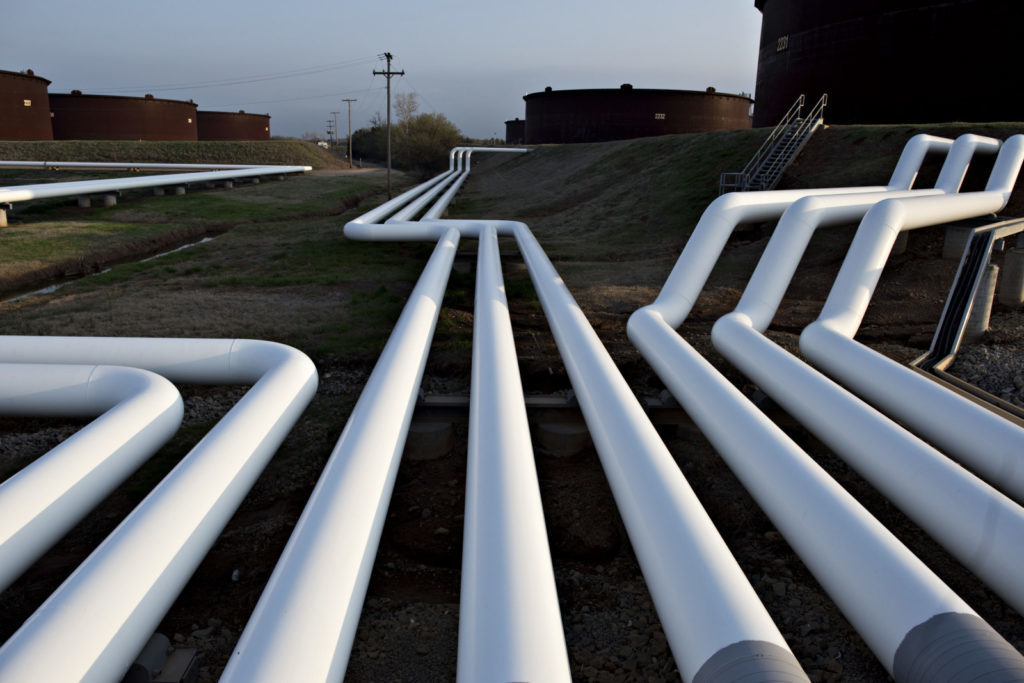
Oil fell as traders monitored the worsening fallout from the closure of the largest U.S. oil-products pipeline, and looked ahead to OPEC’s latest analysis of global supply and demand.
West Texas Intermediate dropped after fluctuating on Monday, before ending almost unchanged. Colonial Pipeline Co., a key supplier of fuels to the eastern U.S., said that services will be mostly restored by the end of this week following a cyberattack. The outage, which triggered a short-lived spike in U.S. gasoline futures, has interrupted flows from Gulf Coast refineries, and Colonial’s chief executive officer warned that supply shortages may occur.
There are signs of disruption, even with the hoped-for restart of the vital conduit. Some gas stations along the East Coast are beginning to run out of fuel, with North Carolina declaring a state of emergency. Among processors, Total SE scaled back activity in a key unit at its Port Arthur, Texas, refinery, and Citgo Petroleum Corp. cut rates at its Lake Charles, Louisiana plant.
Crude has surged this year on expectations the roll-out of Covid-19 vaccines will allow lockdowns and curbs to be lifted, although the rally has stalled somewhat since early March. The Organization of Petroleum Exporting Countries and its allies are gradually restoring some of the supplies they’ve been withholding, betting that the extra barrels can be absorbed as demand rises.
“After taking into account the fact that the Colonial Pipeline is expecting to resume full services by the end of the week, the market appears to have set aside the incident as a temporary disruption,” said Vandana Hari, founder of Vanda Insights. “Oil market attention is shifting back to the global dichotomy between countries emerging out of the Covid storm and some still in its grip.”
Although the pandemic has eased in the U.S., Europe and China, it’s still rampant in other nations, most notably India. The World Health Organization considers the variant that’s been spreading there a global concern, and will provide more details in a report later Tuesday. At the same time, the number of new U.S. cases rose last week at the slowest pace since the outbreak began.
Prices:
- WTI for June delivery declined 0.7% to $64.45 a barrel on the New York Mercantile Exchange at 11:46 a.m. in Singapore. Most-active prices capped the first back-to-back weekly rise last week since early March.
- Brent for July settlement fell 0.7% to $67.82 a barrel on the ICE Futures Europe exchange.
- U.S. gasoline futures lost 0.6% to $2.1204 a gallon.
OPEC’s report is due Tuesday and it’s typically published early afternoon in Vienna.
The group and its allies — which slashed supply when the pandemic hit — are phasing in just over 2 million barrels a day through July, starting with 600,000 barrels in May.
Separately, the U.S. Energy Information Administration is also scheduled to issue its Short-Term Energy Outlook later on Tuesday.
Brent’s prompt timespread was 23 cents a barrel in backwardation. While that is a bullish pattern — with near-term prices above those further out — it’s down from 43 cents a week ago.
Related coverage:
- Saudi Aramco gave full contractual supplies to at least two buyers in Asia for June-loading cargoes, according to refinery officials.
- Venezuela’s state-owned oil firm PDVSA hopes to attract $77.6 billion in investment and increase oil and gas output.
- Pioneer Natural Resources Co. dropped after announcing that Apollo Global Management Inc. and Quantum Energy Partners plan to sell shares in the shale producer.